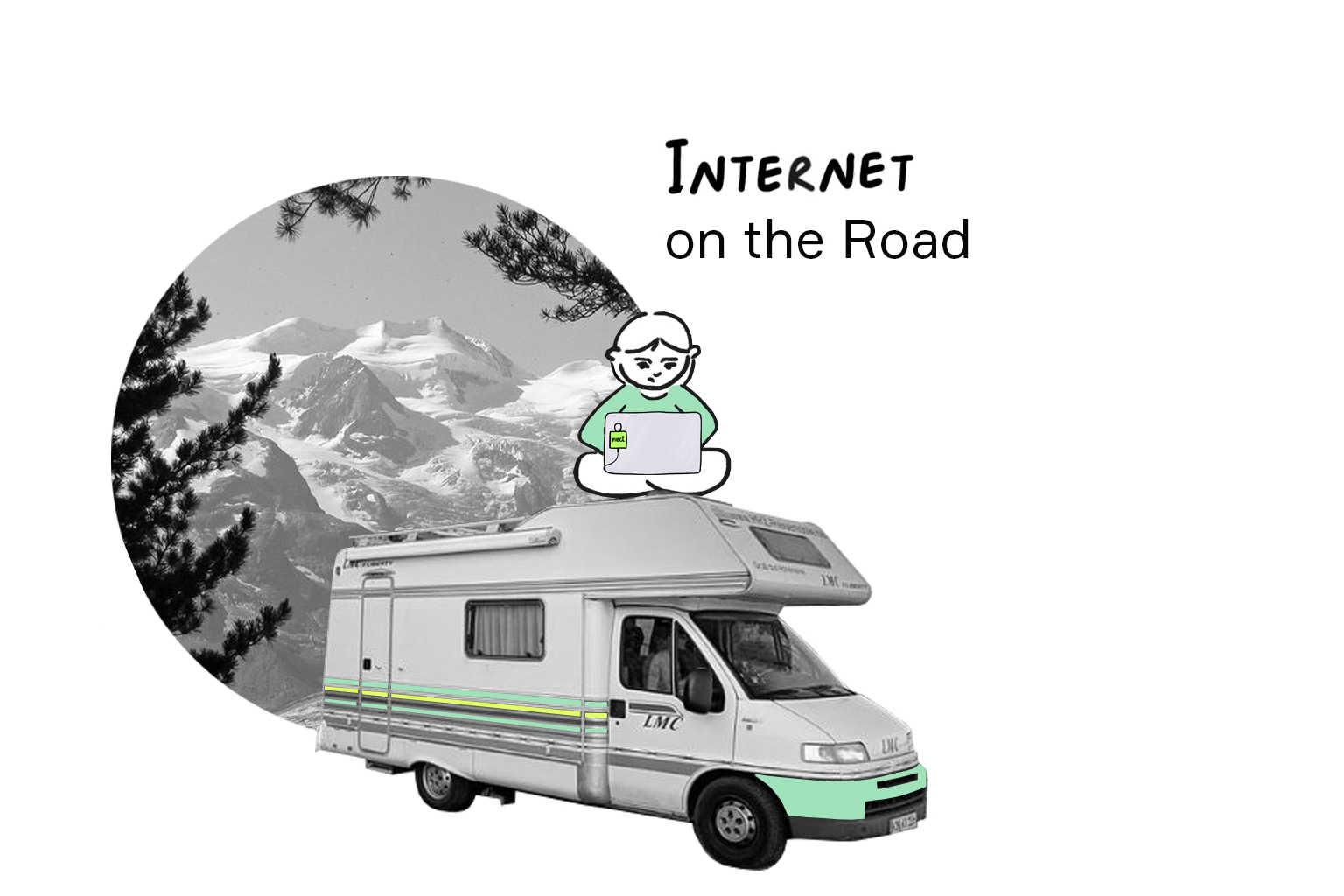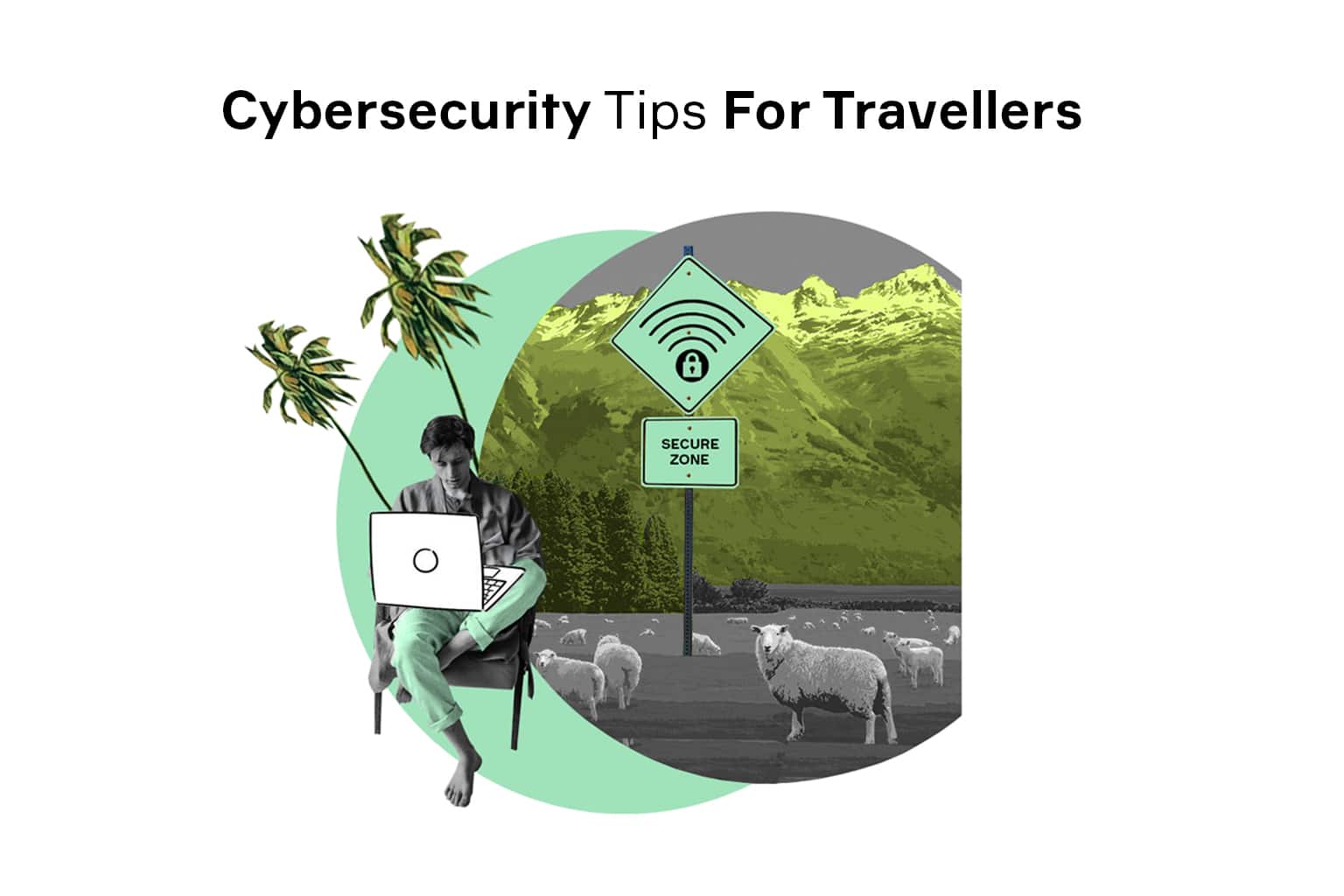
The nomadic lifestyle has always had an attractive vibe around it, providing people with an adventurous mindset on the road since time immemorial. Eventually, as the technology improved, it became possible to embrace your inner wanderer without sacrificing the career. In particular, the ability to get reliable Internet on the road from virtually any corner of the world gave birth to a new phenomenon known as a digital nomad – someone who is working remotely with satellite Internet. This is easier said than done, however, so today we’ll look at the best ways to get Internet on the go and enjoy a fast connection in your RV without spending a fortune.
What is RV Travel?
The remote working trend was boosted by the COVID-19 outbreak, which has already had a profound impact on the way we live and work. In this case, the need to stay indoors during the lockdown has prompted a surge of interest in RV travel. According to the survey conducted by the RV Industry Association, 20% of Americans plan on looking into RV traveling in the aftermath of the pandemic. As you might expect, this trend is especially prominent among the younger generation. For instance, the data from RVShare, the RV rental platform, shows that more than 70% of millennials are interested in trying RV travel in the future. Since many of them rely on mobile Internet for work, they’ll probably want to get Internet while traveling in an RV. Here’s a rundown of options to help all the digital nomads out.
How to Get Internet on Laptop on the Road: 4 Main Ways
When it comes to the “nomad Internet,” it’s safe to say we live in the era of plenty. There are plenty of ways to go online from your laptop, so everyone can choose something that fits their lifestyle:
- Mobile hotspot
- Portable modem
- Satellite Internet
- In-car WiFi
Each option comes in several varieties with their strengths and weaknesses. So, to help you choose the one that will work for you, here’s an in-depth overview of each type.
Mobile Hotspot
Without a doubt, the best Internet for RV travelers is the one you can take with you wherever you go. In the era of wireless technology, this boils down to a device that can get you connected to the mobile network. Modern phones have become particularly good at this in recent years. However, while a phone excels at high-speed connection, it makes a poor travel modem router – kind of a selfish approach, if you ask me. There are three downsides related to it:
A mobile hotspot is a resource-heavy feature, so it will drain your phone’s battery quite quickly. This might not be a problem for an occasional emergency Zoom session or an urgent update. However, if we are talking about working from RV Internet – well, that’s not a sustainable option.
When you tether the connection to a phone, you are stuck with its data plan. Again, not a problem for quick in-and-out sessions. Still, if your working routine involves any heavy-traffic activities like video streaming, it can burn through the entire monthly allowance in a rather short while.
Theoretically, a phone-based hotspot supports multiple connections. In practice, the performance drops with each new connected device. To be fair, this might not be that big of an issue for vanlife Internet (Internet on the road), which is supposed to be minimalistic in the first place. Still, there are so many Internet-enabled devices nowadays that even on the road a phone may struggle to keep up.
Read more: 4G Modem vs Hotspot: Everything You Need to Know Before Making a Choice [Infographic]
Portable WiFi Device for Travel
If you want to retain the freedom and convenience of a mobile hotspot without dealing with all of its drawbacks, the logical choice is to use a dedicated cellular data device. These come in all shapes and sizes, from a tiny USB dongle to a feature-rich and powerful portable modem. Their basic functionality is largely identical, with the former emphasizing portability and simplicity whereas the latter striving to be a fully functional home network device. This gives portable modems a number of advantages:
- Speed: A modern portable modem will support multiple LTE bands, which offer bandwidth on par with cable Internet for home.
- Performance: Despite being marketed as a travel hotspot, the gadget can handle up to 10 connected devices without slowing down the network.
- Flexibility: In addition to the mandatory SIM card slot, a travel modem can support the novel eSIM technology that will let you switch between several data plans on the go.
- Reliability: Modems usually have their own battery, and some can be powered directly from a USB port.
- Ease of Use: The configuration of the gadget is done through a user-friendly app and requires only basic technical knowledge.
- Security: A portable modem supports encryption and comes equipped with a built-in VPN service.
To sum up, a travel modem is the closest you can get to the home network experience with your RV Internet without sacrificing portability.
Also read: The Ultimate Guide to Portable Internet Devices: Hotspot, Modem, Dongle or Router
Satellite Internet
Despite all their advantages, mobile Internet solutions have one obvious weakness – they only work where there’s cellular coverage. In this light, satellite Internet looks like a perfect match, as it literally covers the entire globe. All you need is a satellite modem and a clear sky above. Sounds nice, doesn’t it?
Well, here’s the catch: the satellite setup is actually quite finicky. The antenna requires a rather precise configuration, and the equipment is quite bulky, so not every RV is actually suitable for transporting it. Also, the “clear sky” part is actually very important, as the signal will deteriorate in poor weather conditions. Finally, it’s both slower and more expensive than mobile Internet. In other words, satellite connection can be used as an RV Internet solution, but there are certainly better options around.
How to Get WiFi in RV?
Wireless connection has become the go-to solution in home network setups thanks to its convenience and reliability. However, it created some terminology confusion in the process. In this context, when people ask how to get WiFi in an RV, they can mean two different things. Sometimes they will refer to a travel modem router mentioned above – essentially a WiFi inside the car.
Sometimes, however, they will think about a hotspot on the RV camp’s premises. Going online in this way has its own set of challenges. First, such hotspots often struggle to deliver consistent speeds to all the campers. This will be especially noticeable in large areas with uneven coverage. Second, the walls of your RV will make the reception even worse. While this problem might be addressed with a WiFi booster or a repeater. However, you still end up with a subpar connection, so if you are ready to purchase a separate gadget for the Internet on the road – a mobile modem is probably a better option.
Read more: Top Tips to Stay Connected While Traveling with WiFi Devices
Wrapping Up
Working from RV Internet is a major part of the digital nomad experience. It can certainly be off-putting for those diving head-on without having their expectations set. Nevertheless, with sufficient understanding and preparation, it can be as convenient, safe, and reliable as a trusted home network. So plan accordingly and be sure to equip yourself with the best portable WiFi for travel.






